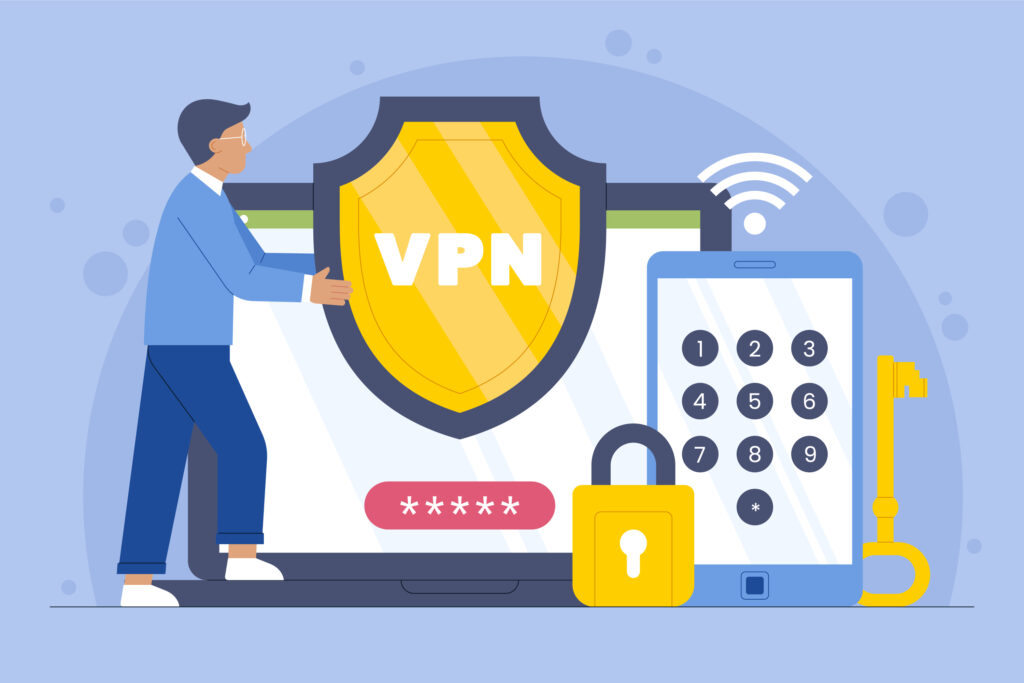In today’s digitally connected world, concerns about online privacy and security have never been more prominent. As a result, Virtual Private Network (VPN) apps have gained popularity as tools to protect your online identity and data. While VPNs are essential for safeguarding your information, not all VPN apps are created equal, and some free VPN apps for Android come with serious risks, including data leakage. In this article, we will delve into the dangers of using free VPN apps and provide guidance on how to protect yourself from potential data leaks.

The Appeal of Free VPN Apps
Free VPN apps have garnered a substantial user base due to their enticing promises:
-
Cost Savings: The primary allure of free VPN apps is, of course, that they don’t require payment. Users appreciate the idea of securing their internet connection without reaching into their wallets.
-
Anonymity: Many people seek VPNs to hide their IP addresses and maintain online anonymity. Free VPNs promise to offer this service, further drawing users in.
-
Bypassing Geo-Restrictions: Free VPN apps often claim to provide access to geo-restricted content, allowing users to watch streaming services or access websites blocked in their region.
-
Convenience: Downloading and using a free VPN app is often as simple as installing it from an app store, making it seem like an effortless way to enhance online privacy.
The Pitfalls of Free VPN Apps
While free VPN apps may seem like a convenient and cost-effective solution, there are significant downsides to consider:
-
Data Logging: Many free VPN apps log user data, including your online activities and connection details. This data can be used for various purposes, including advertising, which goes against the principle of online anonymity.
-
Inadequate Encryption: Some free VPNs use weak or no encryption, leaving your data vulnerable to interception by malicious actors.
-
Data Leaks: Certain free VPN apps have been known to leak user data, including IP addresses and DNS information, making it possible for third parties to track your online activities.
-
Malware and Adware: Free VPN apps may contain intrusive advertisements or even malware, posing risks to your device and personal data.
-
Limited Servers: Free VPNs typically offer a limited number of servers, leading to slow connections and unreliable performance.
The Risks of Data Leaks: A Closer Look
Data leakage is one of the most critical concerns associated with free VPN apps. Here’s why it matters:
-
IP Address Exposure: A VPN’s primary function is to hide your IP address. However, certain free VPN apps fail to do this effectively, which means your true IP address remains exposed.
-
DNS Leaks: DNS (Domain Name System) leaks occur when your VPN fails to reroute DNS requests through its encrypted tunnel. This can allow third parties to monitor the websites you visit.
-
WebRTC Leaks: Web Real-Time Communication (WebRTC) leaks can reveal your true IP address even when using a VPN, making it possible for websites to detect your location and potentially compromise your privacy.
An Example: The Case of “SuperVPN”
To illustrate the risks associated with free VPN apps, let’s examine a case involving the app “SuperVPN.” While it may have a high number of downloads and a seemingly positive user rating, SuperVPN has garnered significant attention for problematic reasons:
-
Data Leakage: Researchers have discovered that SuperVPN actively leaks user data, including IP addresses, DNS queries, and visited websites. This means that users who believe they are safeguarding their online privacy are actually exposing their online activities.
-
Ownership Concerns: SuperVPN is owned by a Chinese company, which raises concerns about how user data may be used or shared due to China’s strict data privacy laws and government surveillance practices.
-
Inadequate Encryption: SuperVPN does not provide sufficient encryption, rendering users’ data susceptible to interception and monitoring.
-
Excessive Permissions: The app requests numerous permissions, including access to your device’s camera and microphone, which are unrelated to VPN functionality and could be indicative of privacy violations.
Protecting Yourself from Risky VPN Apps
To guard against the risks posed by free VPN apps, follow these recommendations:
-
Choose Reputable VPN Services: Opt for well-established and reputable VPN services that have a proven track record of protecting user privacy and data security.
-
Research Extensively: Read user reviews, research VPN providers, and check for any history of data leaks or security issues associated with the app you intend to use.
-
Examine Permissions: Carefully review the permissions requested by a VPN app. If an app requests access to features or data unrelated to its core function, consider it a red flag.
-
Pay for Premium Services: While free VPN apps may be enticing, investing in a premium VPN service often guarantees better privacy protection and security.
-
Check Ownership: Be cautious of free VPN apps with unclear ownership, especially if they originate from regions with less stringent data privacy regulations.
-
Stay Informed: Keep up to date with the latest developments and news regarding VPN services, data breaches, and online privacy issues.
Conclusion
While VPNs are essential tools for safeguarding your online privacy and security, not all VPN apps can be trusted, especially when they are offered for free. The case of “SuperVPN” serves as a stark reminder that some free VPN apps can actively compromise your data and privacy. To protect yourself from potential data leaks and security risks, exercise caution, choose reputable VPN services, and prioritize your online privacy. Your digital security should always be a top priority, and that begins with making informed choices about the tools and services you use.